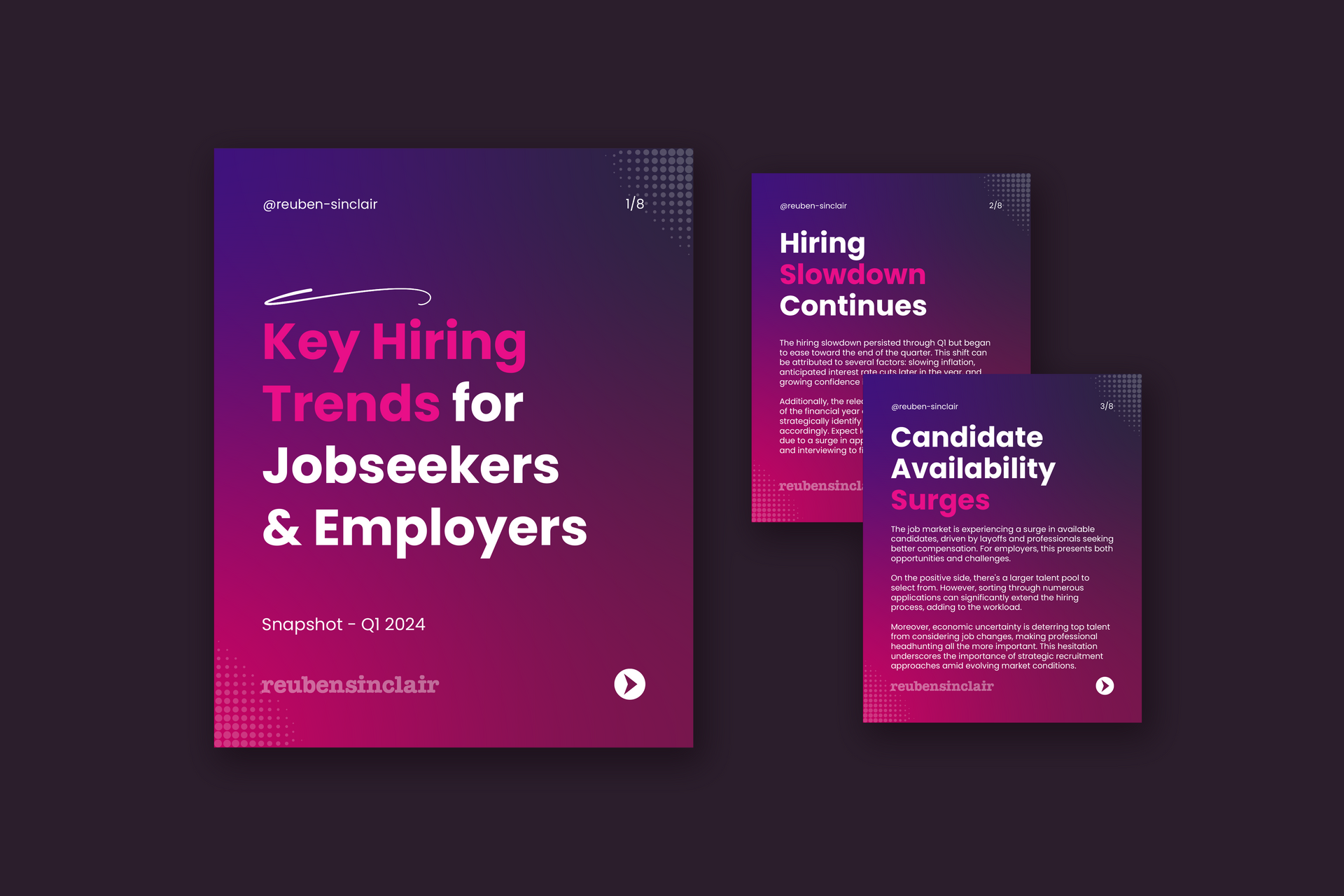Key Hiring Trends for Jobseekers & Employers - Q1 2024 Snapshot

What's the UK job market saying?

With Q1 of 2024 wrapped up, our team has put together a snapshot of key hiring trends you won't want to miss out on.
What's below?
- Trends impacting hiring decisions in Q1
- Insights on candidate availability and skills shortages
- Strategies for optimising the recruitment process
- Actional tips for job seekers and employers
More info? Download 2024 Salary Guides
- PR & Comms UK Salary Guide 2024
- Digital & Marketing UK Salary Guide 2024
1. Hiring Slowdown Continues
The hiring slowdown persisted through Q1 but began to ease toward the end of the quarter. This shift can be attributed to several factors: slowing inflation, anticipated interest rate cuts later in the year, and growing confidence in an economic rebound.
2. Slower Wage Growth
Additionally, candidates who entered the job market during the peak years of 2021 and 2022 maintain high salary expectations, posing a challenge for employers in meeting these demands amidst the current economic climate.
3. Talent Availability Surges
The job market is experiencing a surge in available candidates, driven by layoffs and professionals seeking better compensation. For employers, this presents both opportunities and challenges.
On the positive side, there's a larger talent pool to select from. However, sorting through numerous applications can significantly extend the hiring process, adding to the workload.
Moreover, economic uncertainty is deterring top talent from considering job changes, making professional headhunting all the more important. This hesitation underscores the importance of strategic recruitment approaches amid evolving market conditions.
4. Skills Shortages Persist
While skills shortages persist across segments of the job market, they also signal opportunities:
- Positions requiring expertise in specific digital tools and platforms.
- Mid-level positions, especially within niche sectors.
- Senior-level roles for professionals skilled in strategic business development and leading pitches.
Employers highly value candidates with demonstrated
commercial acumen and a track record of successful
business growth initiatives, creating promising
pathways for skilled professionals in these areas.
What this means for Jobseekers
Jobseekers - sharpen your CV.
Highlight your achievements and in-demand skills to differentiate yourself effectively.
Now is also an opportune moment to reflect on your career priorities. Identify key areas that matter most to you in your next role and focus on upskilling in those areas. Keep an eye on the market for your ideal position, especially if it's a rare opportunity.
If you're unsure about where to begin or need guidance, don't hesitate to reach out to us directly for support and advice.
What this means for Employers
Employers - prioritise the following strategies to thrive in a competitive market and streamline recruitment processes:
- Strengthen the long-term aspects of your talent acquisition strategy, employer branding, and employee value proposition to attract top talent efficiently.
- Despite wage pressures, be prepared to offer competitive salaries to secure top-tier candidates.
- Engage with passive candidates or those open to exploratory discussions during ‘quieter’ hiring phases. Building connections now can enhance agility and readiness for future hiring needs.











